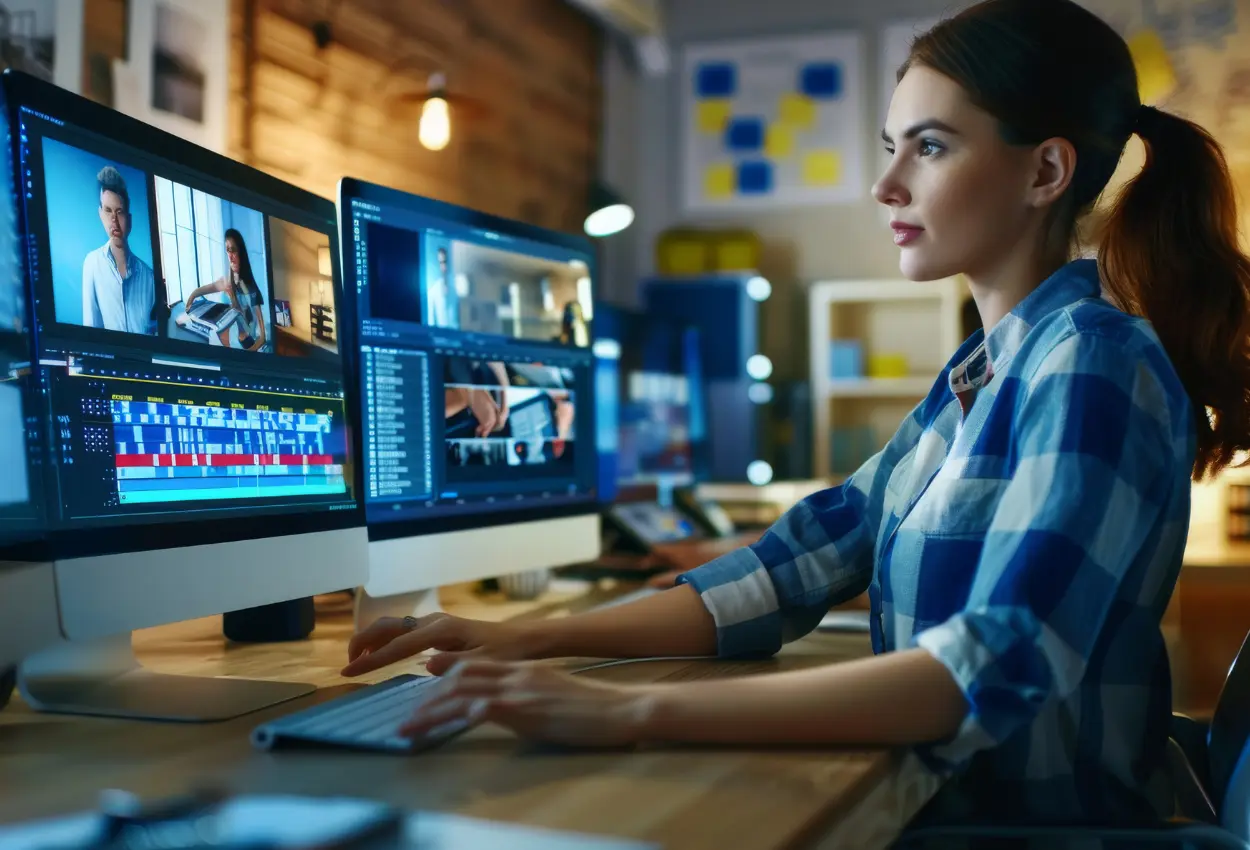
Mastering Rotoscoping Challenges: Motion Effects’ Approach
Rotoscoping is a vital technique in visual effects, which is an essential and unavoidable part
of the workflow. At Motion Effects, we use rotoscoping to meticulously trace over footage,
frame by frame, to isolate subjects and objects to ensure further compositing is done
seamlessly.
But let’s be honest–as rewarding as it is, rotoscoping can be challenging and a very
laborious task. Let’s dive into some common hurdles we face with rotoscoping and how we
overcome them to deliver top-notch results.
The Time-Consuming Nature of Rotoscoping
Rotoscoping is incredibly detail-oriented. Every frame needs to be carefully traced and
tracked, which can be a painstakingly slow process. It’s not uncommon for a single second
of footage to require hours of work. This challenge is compounded when dealing with scenes
involving multiple moving objects.
How We Tackle It:
We streamline the process using advanced software like Adobe After Effects and Nuke,
couples with Mocha Pro to speed up our workflow without compromising quality. Our team is
skilled in utilizing all the features of these software to get the shot home. We also break
down tasks into manageable chunks and focus on one element/subject at a time.
Maintaining Consistency
One of the biggest challenges in rotoscoping is maintaining consistency across frames.
Slight variations in how an object is traced can lead to jittery and unprofessional-looking
results. This is especially challenging in longer sequences with hundreds of frames.
How We Tackle It:
We set strict guidelines and reference points for each project. Automated tools like spline
and keyframe interpolation help maintain uniformity. Regular reviews and adjustments catch
and correct inconsistencies early on.
Dealing with Motion Blur
Motion blur adds a layer of complexity to rotoscoping. Fast-moving objects often appear
blurred in footage, making it difficult to determine their exact shape and boundaries. This can
result in less precise tracing, affecting the overall quality of the final output.
How We Tackle It:
We employ advanced techniques to deal with motion blur effectively. By using motion blur
estimation tools and applying vector-based rotoscoping methods, we can achieve more
accurate results. Changes are we may not get the desired results, and that is when the
patience and perseverance of the Roto artist comes in handy, as the shots has to be done
manually – frame by frame.
Handling Hair and Fine Details
Hair, fur, and other fine details pose a significant challenge in rotoscoping. Capturing these
elements accurately requires a high level of precision and patience. Missed or poorly traced
details can easily ruin the realism of a scene.
How We Tackle It:
Our approach to tackling fine details involves a combination of meticulous manual work and
sophisticated software tools. We use edge-detection algorithms and refine edges to capture
the subtleties of hair and other intricate elements. Additionally, we frequently zoom in and
out to ensure every detail is captured accurately from both a macro and micro perspective.
Final Words
Rotoscoping might be time-consuming and complex, but it’s also incredibly rewarding when
done right. At Motion Effects, we pride ourselves on overcoming these rotoscoping
challenges through a blend of technology, expertise, experience and a meticulous approach.
We love seeing the transformation from clean plates to a polished, professional fx shots that
wows our clients and their audiences.
If you need expert help with rotoscoping, Motion Effects is here for you. Explore our website
to learn more about our VFX Services.
Want to see how we can bring your vision to life? Get in touch with us!
